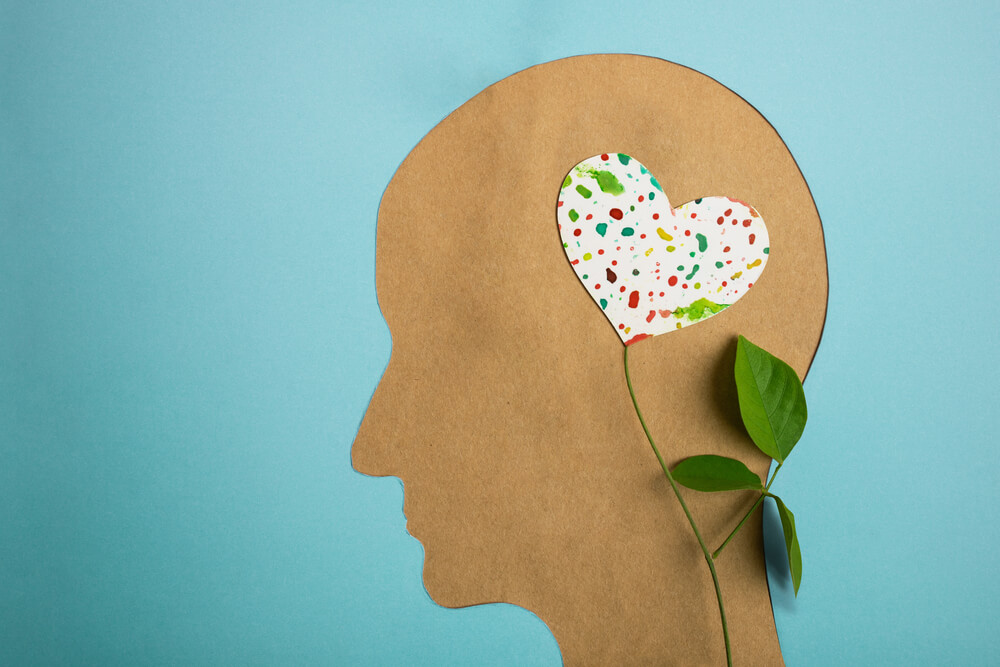
Mental Health
Services
For all groups
Sustain Your Healthiest And Happiest Life
Our clinic positions clients at the center of our care. It is a collaborative process starting from the intake process, to the individualized treatment planning that encourages trust and open communication among all parties.
We are a highly specialized clinic with the expertise in dealing with the most common to the most advanced mental health issues for individuals, couples, families, or groups in all demographics.

Schedule a one-on-one consultation with our therapists.

Treatment Success Results from
(3) Three Major factors
METHODS. First is using Evidence-based treatment approaches that are appropriate for your specific case or problem.
THERAPIST’S SKILLS & EXPERIENCE. The integration of these effective methods together with the psychotherapist’s clinical experience.
CLIENT’S BACKGROUND & MOTIVATIONS. Accurately customizing your treatment plan according to your unique characteristics, values, culture, circumstances, and preferences.
Treatment success results from three major factors. First is using Evidence-based treatment approaches that are appropriate for your specific case or problem. The integration of these effective methods together with the psychotherapist’s clinical experience and third is accurately customizing your treatment plan according to your unique characteristics, values, culture, circumstances, and preferences.
Key Questions to Ask Before Visiting a Therapist
Reasons
What are your main goals for psychotherapy?
Who Will Be Needing Therapy?
Yourself, both you and your partner or spouse, your family, your child, or your specific group/ organization?
Mode of Session
If in-person, how far are you willing to drive? Do you like the location?
Telehealth
Are you comfortable using technology? Do you have a desktop or laptop to use with a camera and microphone in a quiet and private room with WIFI and/or cellular service? We use the Telehealth App by Simple Practice & Client Portal for booking and other communication.
Service Cost
Will you use your health insurance or paying out of pocket? Self-pay rates are different from using insurance and Employer Assisted Services (sponsored treatment) through the company benefits program. Insurance rates = $150-$290 and Self-pay rates = $190-$350.)
Scheduling
What days and times would be most convenient for you?
Our Client Demographics
Who We Treat

3-12 years
Children

13-19 years old
Teens

20-39 years old
Adults

in-network
EAP (Work-Sponsored)

adults
Couple/ Relational

40-59 years old
Middle Age Adults

60+ years old
Senior Adult

ANY RACE,religion,gender, SOCIO-economIC STATUS,STAGE
Diversed Group
in support of you REGARDLESS of your identity or
Stage in Life

Stages of Development
Our highly integrative approach is grounded in the Erik Erikson’s theory which follows the Epigenetic Principle, suggesting that individuals develop sequentially over time, influenced by the larger community they are part of.
infancy birth to 18 months
Trust vs.
Mistrust

toddlers 18 months - 3 years old
Autonomy vs.
Shame & Doubt

pre school 3 - 5 years old
Initiative vs.
Guilt

middle school 6-11 years old
Industry vs.
Inferiority
Most Common
Conditions We Treat
The multitude of significant life events that individuals may experience can indeed be overwhelming. These events—whether joyful or challenging—can take a toll on mental health. It’s crucial to recognize that seeking mental health care support is an essential step towards healing and achieving a better life. When faced with major transitions like marriage, divorce, or the death of a loved one, it’s normal to feel a range of emotions that can sometimes become difficult to manage alone.
Events such as the birth of a child, migration, or starting a new job bring new responsibilities and pressures, which can also contribute to stress and anxiety. Even positive changes like receiving a promotion or retiring can lead to feelings of uncertainty and adjustment challenges. When faced with the onset of illness or acquiring a disability, it becomes even more vital to seek help.
Mental health care provides individuals with tools and strategies to navigate these complex emotions and situations. Professional support can lead to a deeper understanding of oneself, fostering resilience and improving overall well-being. Remember, reaching out for help is a sign of strength and a key step towards healing. Embracing mental health care can pave the way for a more fulfilling and balanced life. Prioritizing your mental health is not just important—it’s transformative.
Stress and Anxiety
Many individuals seek assistance to manage stress and anxiety stemming from various factors, including:
- Burnout
- Conflicts in relationships
- Daily responsibilities
Mental Health Disorders
Common mental health disorders include:
- Mood disorders
- Major depressive disorder
- Bipolar disorder
- Eating disorders
- Psychotic disorders
- Impulse control disorders
- Addiction disorders
Mental Health Crises
Mental health crises can arise from:
- Stressful home environments
- Conflicts with loved ones
- Exposure to trauma
- Post-Traumatic Stress
- Disorder (PTSD)
- Experiences of violence
Life Transitions
Life Changes
Life is indeed a tapestry woven from various transitions and experiences, each contributing to our personal narrative. However, amidst these changes—be they joyful milestones like marriage or the arrival of a child, or challenging events such as divorce or health issues—it’s crucial to prioritize mental health care.
Engaging in therapy can be a transformative step in navigating these transitions. It provides a safe space to process emotions, understand our reactions, and develop coping strategies. Therapy can help us build resilience, allowing us to face life’s challenges with a stronger sense of self. Whether you’re grappling with the complexities of family dynamics, the pressures of career changes, or the inevitable reflections that come with aging, mental health care offers vital support.
By committing to our mental well-being and seeking professional guidance, we can enhance our ability to adapt and thrive through life’s ups and downs. Therapy is not just a resource during tough times; it is a proactive approach to achieving a balanced and fulfilling life. Prioritizing mental health care is essential as we journey through the rich and varied experiences that shape us.
Relationships:
- Getting married
- Welcoming a child
- Starting a new relationship
- Going through a divorce or separation
Career:
- Beginning a new job
- Changing jobs
- Receiving a promotion
- Experiencing a layoff
- Approaching retirement
Education:
- Leaving or returning to school
- Attending a new school
- Graduating
Family:
- Welcoming a new baby
- Facing an empty nest
- Coping with a death
Moving:
- Relocating to a new city
- Leaving home
- Immigration
Health:
- Facing illness or disability
- Recovering from an illness
Age:
- Celebrating a milestone age, such as 30, 40, or 50
- Generational Conflict in Relationships
Rites of Passage:
- Transitioning through puberty, adulthood, menopause, or the aging process
Grief & Loss, Trauma Recovery
Crisis Intervention
Experiencing grief or a crisis can be profoundly disorienting, as familiar life markers diminish, resulting in a tumult of emotions. Each individual’s journey through grief is distinct, necessitating both patience and support. Healing is not a linear process; it encompasses periods of reflection, sadness, and hope. Seeking assistance from friends, family, or professionals can offer solace and aid in rebuilding resilience while navigating new pathways.
- Recovery from Trauma/ Grief / PTSD
- Post-diagnosis of a Medical Condition
- Veteran’s Support
- Blended Family Therapy
- Caregiver Support: Spouse of an Addicted Partner/Child/ Relative,
- Accidents & Victim of Abuse/ Domestic Violence/ Crime, Religious, Ethnic, Socio-Economic, Gender, Diversity, Equality Issues, Pregnancy/ Fertility Journey, Weight Loss, Financial/ Estate Planning, Disaster/ Calamity, Injury
- After-care/ Exit Strategies & Recovery Planning
Specialized
Mental Health Care
Specialized and advanced mental health disorders or illnesses and symptoms present significant challenges in both diagnosis and treatment, demanding the expertise of highly trained therapists and comprehensive care strategies. Such conditions can severely impact daily functioning, making life exceedingly difficult for those affected. To address these complex needs, individuals often require a personalized and consistent treatment plan that combines psychotherapy, medication, and possibly emergency/urgent care. This approach is bolstered by collaboration with psychiatrists and other healthcare professionals, ensuring a well-rounded support system. The goal is to alleviate symptoms, promote healing, and help individuals develop coping skills that foster the maintenance of healthy relationships and an enhanced quality of life. Patience and resilience are crucial components of this journey towards stability and well-being.
- Obsessive-compulsive disorder (OCD)
- Major depressive disorder
- Post-traumatic stress disorder (e.g. PTSD after experiencing serious injury, death, or sexual violence
- Bipolar (depressive and manic symptoms)
- Changes in thought patterns (e.g. racing or disjointed thoughts, increased focus on religion, flights of ideas).
- Impaired judgement (e.g. extreme impulsiveness or risk taking, inappropriate humor, reckless spending).
- Mood changes (e.g. grandiosity, extreme excitability, sudden shifts to extreme irritability, aggressiveness, paranoia), speech disruptions (e.g. rapid and pressured speech, persistent rambling).
- Sudden changes in energy (e.g. sleeping very little, restlessness, persistent movement, sudden increase in goal-oriented activities).
- Schizophrenia Spectrum: Delusions, hallucinations, disorganized speech, and behavior
- Panic disorder
- Struggling to take care of oneself, social withdrawal, flat affect, trouble with speech, and lack of pleasure.
- Difficulty remembering things, organizing thoughts, and directing attention
Overview of Personality Disorders
Personality disorders, classified into three distinct clusters, profoundly affect an individual’s quality of life. These disorders can disrupt relationships, hinder work performance, and diminish well-being. Individuals may struggle with emotional regulation, interpersonal interactions, and adapting to life’s challenges, often resulting in distress and social isolation.
Those impacted by personality disorders need to seek professional support from therapists. Therapists create a safe and supportive environment, allowing individuals to explore their thoughts and emotions, gain insight into their behaviors, and develop effective coping strategies. Successful therapy can improve interpersonal skills, enhance emotional regulation, and greater self-awareness.
Furthermore, professional guidance aids individuals in understanding the underlying causes of their disorders, facilitating the development of personalized and effective treatment plans. By addressing these challenges through therapeutic intervention, individuals can experience significant enhancements in their quality of life, fostering healthier relationships, increased self-esteem, and greater resilience. Ultimately, seeking therapy is not merely about managing a disorder; it represents a crucial step toward achieving a more fulfilling and balanced existence.
Cluster A: Odd or Eccentric Behavior
- Paranoid Personality Disorder: Individuals with this disorder exhibit a persistent distrust and suspicion of others. They often appear emotionally distant, secretive, and defensive, frequently responding with anger or aggression.
- Schizotypal Personality Disorder: Characterized by eccentric behaviors and unusual traits, individuals may exhibit atypical speech patterns and unconventional dressing styles.
Cluster B: Dramatic, Emotional, or Erratic Behavior
- Antisocial Personality Disorder: This disorder is marked by individuals who frequently encounter legal issues and demonstrate a blatant disregard for the rights of others. They typically lack remorse and are at an increased risk for substance abuse.
- Borderline Personality Disorder: (More information coming soon.)
- Narcissistic Personality Disorder: (More information coming soon.)
Cluster C: Anxious or Fearful Behavior
- Avoidant Personality Disorder: Individuals with this disorder are highly sensitive to rejection, leading them to avoid social interactions. They often experience significant discomfort in social settings and tend to lack close relationships.
- Dependent Personality Disorder: Those affected by this disorder exhibit submissive behaviors and rely heavily on others for decision-making and reassurance. They frequently struggle with feelings of helplessness when alone.
- Obsessive-Compulsive Personality Disorder: Characterized by perfectionism, individuals take on excessive responsibilities but may struggle to complete tasks due to their intense focus on details and inflexibility.
Our Offerings
Generalized Services
When it comes to our services, our therapists and psychiatrists work together to provide treatment for our clients. Our psychiatrists will interview you and learn about your medical history and symptoms related to your needs.


Common Conditions
We will help you by coordinating with your sessions, giving you the most optimal psychiatric treatments, and managing your conditions with proficient coping mechanisms and techniques so you can live a better life.
Specialized Care
Our practice can provide a complete list of mental and behavioral health care services at your disposal to help you understand your emotions and thoughts and treat them effectively.


Career / Life Transitions
More than half of American employees make or have made career decisions based on issues and stress at work, and approximately 55 percent have admitted that work has somehow interfered with their life at home.
Grief/ Trauma/ Crisis Intervention Recovery
How the brain and body respond to substances can affect the choices people make, resulting in serious social and health consequences. For therapists and psychiatrists, helping clients recover from their addictions is a crucial part of mental health.
We offer a variety of treatments to help an array of addictions.
- Recovery from Trauma/ Grief / PTSD
- Post-diagnosis of a Medical Condition
- Veteran's Support
- Blended Family Therapy
- Cocaine Addiction
- Caregiver Support: Spouse of an Addicted Partner/Child/ Relative
- Accidents & Victim of Abuse/ Domestic Violence/ Crime, Religious, Ethnic, Socio-Economic, Gender, Diversity, Equality Issues, Pregnancy/ Fertility Journey, Weight Loss, Financial/ Estate Planning, Disaster/ Calamity, Injury
- Emergency/ Exit Strategies & Recovery Planning

Addiction & Recovery
How the brain and body respond to substances can affect the choices people make, resulting in serious social and health consequences. For therapists and psychiatrists, helping clients recover from their addictions is a crucial part of mental health.
We offer a variety of treatments to help an array of addictions.

Services
For all groups
Mental healthcare and treatment work best when you, the patient, are actively involved in your care.
One-on-one environment to address personal challenges and growth.
Facilitate relationship dynamics and foster familial harmony.
Navigate work-related concerns and aspirations.
A supportive setting for shared experiences and collective healing.
Feeling positive about your sexual orientation can help foster greater well-being.























